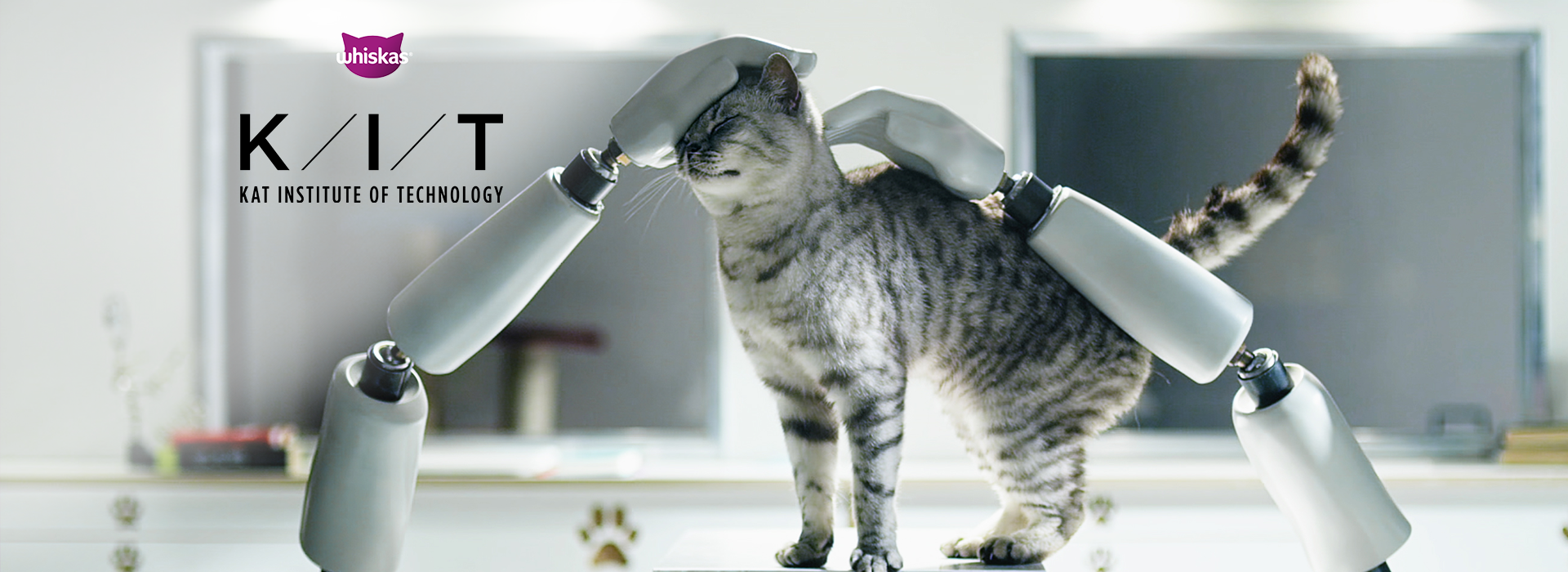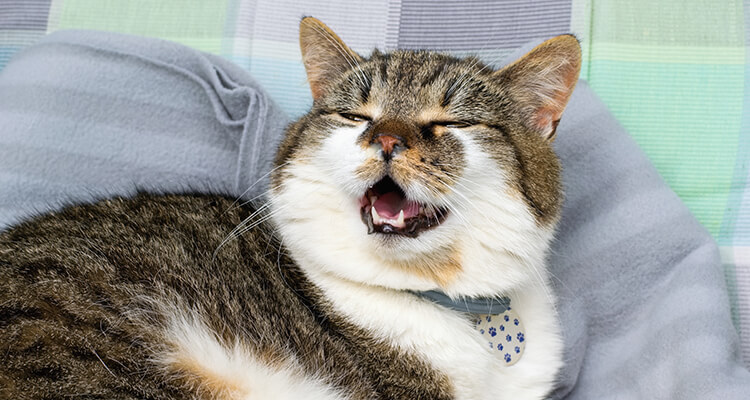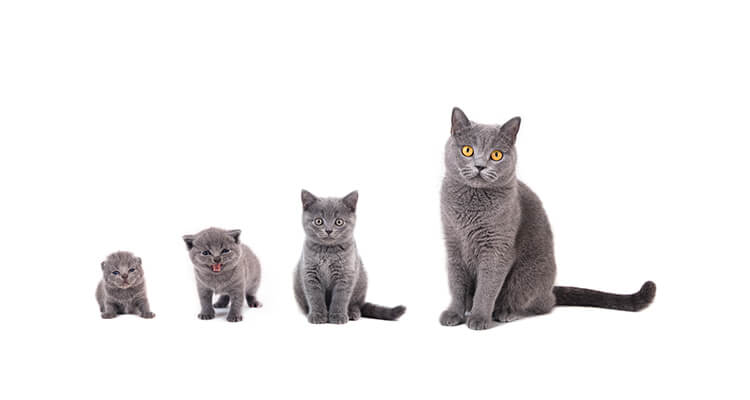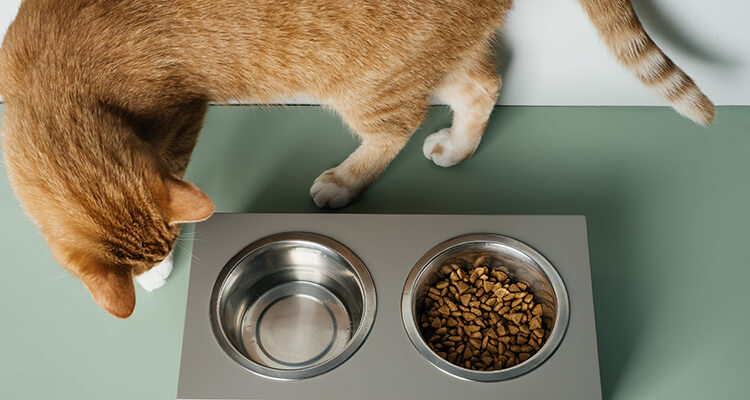
We love our cats, so naturally we want to spend as much time as we possibly can with them. On average, UK cats can live between 12 to 20 years. However, this can vary based on several factors, including the advancements of veterinary care in recent years, which has enabled cats to live longer and healthier lives.
Another crucial factor is the lifestyle of cats. Indoor cats are likely to live longer than outdoor cats, since there are less risks at home than on the streets. This means an indoor cat’s average age can be as long as 15 to 20 years, while an outdoor cat’s lifespan is shorter, between 10 to 15 years.
In this article, we discuss cat life expectancy, covering the influencing factors and how to improve the average age of a cat. You can also learn how to tell if your cat is getting old, to proactively manage their health.
Factors that influence lifespan of a cat
In order to understand the life expectancy of cats, owners will need to first recognise the influence of genetic, environmental and healthcare factors. By being better informed, cat parents can create a nurturing environment that promotes a longer and healthier life for their feline companions.
In this section, we discuss some of the main factors that influence a cat’s lifespan, including nutrition, activity levels, environment, veterinary care and genetics.
Nutrition and Diet
A complete, balanced and appropriate diet is essential for your cat. You should provide your cat with high-quality food that is appropriate for their age, lifestage, lifestyle, health and dietary requirements. This will ensure your cat is getting the right amounts and ratios of proteins, carbohydrates and fats, as well as vitamins and minerals. These essential nutrients will help manage your cat’s weight, support their organ function and prevent certain diseases. Without proper nutrition, your cat could be at risk of excessive weight gain or loss, leading to a multitude of other health issues, and affecting the lifespan of your cat.
Activity Levels
It’s also important to ensure your cat receives plenty of physical and mental stimulation, both of which support their overall well-being. You should engage your cat in regular play, using interactive toys like feather wands, laser toys or even a ping-pong ball. Puzzle feeders are another way to stimulate your cat by appealing to their hunting instincts. Make sure to keep cat furniture around the house, including scratch posts, climbing frames or cat trees, so your cat has opportunities to explore and exercise. This will strengthen their muscles, reduce stress levels and prevent weight gain, all of which can improve the average age of your cat.
Environment
Your living environment can significantly contribute to your cat’s lifespan. Cat parents need to keep their pets safe from hazards, including chemicals, toxic plants and harmful human foods. Your cat should also feel safe in their home, without any triggers that can make them feel anxious or stressed. It’s also essential to provide enough space for your cat in your home, with a place for them to retreat and hide if they ever feel overwhelmed. A secure and nurturing environment with social interaction can help your cat to thrive for longer.
Veterinary Care
A significant contributor to why the average age of a cat has increased in recent years is due to veterinary care. The standard of care has improved significantly, with regular health checks, annual vaccinations and preventative flea and worm treatment. Since cat parents are visiting the vet more often, it allows for early detection of health diseases, which means it can be managed sooner and more effectively. Of course, this can positively support your cat’s life expectancy.
Genetics
Genetics can also impact how long cats live, since some cat breeds are at higher risk of certain health problems. If you have a pedigree cat, it’s important to have genetic tests done to check for breed-specific conditions that could impact their health. This is especially important if you are breeding your cat. Health conditions can impact your cat’s lifespan, which is why it’s important to be informed and address any health concerns as early as possible.
While considering the above factors, you may also want to read on five steps to a longer life for your cat.
The impact of lifestyle choices
Ultimately, lifestyle can impact how long cats live. Your cat should have a balanced diet and engage in regular exercise for their physical health. You should also ensure your cat’s receive plenty of stimulation and positive social interactions with minimal stress at home to support their mental wellbeing. By understanding the impact of lifestyle choices on their cats, owners will be able to provide better care for their feline friends. Start off by exploring kitten development, so you can nurture your cat from the beginning.
Indoor vs. outdoor living
Among cat enthusiasts, there is ongoing debate as to whether cats should be allowed to roam outdoors or kept indoors because of how it can affect the lifespan of a cat. Indoor cats’ life expectancy is longer as they are safer from parasites, diseases, predators and traffic.
On the other hand, outdoor cats have a shorter lifespan (2-7 years) than indoor cats due to risks like predators, cars, disease, and infection, though some can live 10-15 years with proper care. They do, however, enjoy the fresh air, along with the sounds, sights and smells which indulge their natural instincts of exploring outdoors. As long as your indoor cat receives enough stimulation and interaction, they can lead long and enriching lives.
How to respond to your cat’s ageing signs?
Cat parents should be aware of the signs of ageing in cats so that they can adjust their care accordingly. Certain changes in your cat’s behaviour can be indicative of ageing, such as decreased activity levels, altered sleep patterns and excessive meowing.
You may also notice your cat is struggling with their sense of sight, hearing or smell, as well as their mobility. In this case, you may need to adapt your living environment by improving accessibility and avoiding sudden changes, in order to keep your cat safe.
Also, keep an eye on your cat’s eating habits and bowel movements, in case of dental issues, digestive problems or dehydration. We discuss common health issues in senior cats in more detail, so you know what to look out for.
Tips and tricks to improve the average age of your cat
There are many tips and tricks that can support your cat’s lifespan and we’ve listed some examples below:
- Engaging in interactive play with your cat is an opportunity for both exercise and social interaction. Reward your cat with WHISKAS® Cat Treats to strengthen your bond together, support their well-being and satisfy their taste buds!
- Provide puzzle feeders or toys that will mentally stimulate your cat, keeping their brains sharp and preventing cognitive decline. This will also appeal to their hunting instincts and keep them entertained.
- Make sure your cat is of a healthy weight, as overweight cats are at higher risk of health issues like heart disease, diabetes and arthritis. By taking your cat to the vet regularly, you can monitor their weight closely.
- Support your cat’s health with supplements that are beneficial for their life stage. For senior cats, this can help with their organ function, joint health and overall wellness.
Learn how to calculate cat years and understand your cat’s lifespan better.
As we’ve discussed, there are many factors that influence the lifespan of a cat. As a cat parent, it’s important to provide the best possible care that you can. Make sure that your cat is receiving proper nutrition, physical and mental stimulation, regular veterinary checks and a nurturing environment, and you’ll be supporting your cat’s life expectancy. Remember that getting a kitten is a long-term responsibility, and being well-informed and prepared is crucial.
Some frequently asked questions related to age of a cat
What is a good age for a cat?
There are many factors that can determine what a good age is for a cat, including their breed, genetics, lifestyle and health. Ultimately, there is not a specific good age for cats, as each individual cat has different life expectancies depending on their unique circumstances. Providing your cat with a loving home, proper nutrition and veterinary care can support your cat’s life expectancy.
Do male or female cats live longer?
It has been found that female cats live longer than male cats, as the average lifespan of a female cat is 15 years, compared to a male cat which is 13 years. However, it also depends on whether or not the cats are neutered or spayed. Generally, there is no major difference between the genders on lifespan, and there are other contributing factors.
What is the average lifespan of a cat in the UK?
The average lifespan of a cat in the UK can range from 12 to 16 years. How long cats live in the UK has significantly increased in recent years, as there is improved veterinary care and better understanding of cat’s health. In fact, many cats can live up to 20 years, give or take.
How old is a 13 year old cat in human years?
Generally, a 13 year old cat would be estimated to be 68 years old in human years. In the first two years of life, your cat ages more quickly, so a 2 year old cat is roughly calculated to be 24 years old. After this, you add 4 years to every year of your cat’s life.













